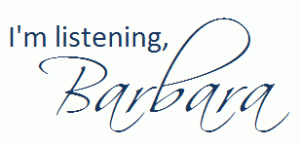
Originally published on 9 December 2009 & featured in Ragan’s PR Daily. Updated on 20 May 2010. Updates are in italics.
Over the past few semesters, I had nearly 450 of my students blogging as part of their grades in public relations courses. And this semester, I have more than 75 more. Based on their experiences and mine, here are some tips for maintaining your blog (especially when it’s graded as an assignment):
- Your professor may require a certain amount of posts on specific topics and perhaps even a specific length. Follow these guidelines to a T. Refer to the assignment sheet/post often to be sure you’re doing what’s needed.
- There may be interim deadlines for your blog posts. Keep up. Even if there aren’t interim deadlines, blog throughout the semester. If you do all your posts toward the end (or even the day they’re due), it’s not to your advantage. It will appear as though you procrastinated. Your readers will likely not read more than a post or so a day, so piling a bunch into one day actually hurts your readership.
- Make an editorial calendar for yourself based on the blog requirements. Consider using Google Calendar to keep track of posts you intend to write and when they should be written. (Google Calendar can even send you text message reminders.)
- Stuck for topics? Ask your readers at your blog what they’d like to see, or ask your followers on Twitter for help. Read Ragan’s PR Daily and listen to PR podcasts for additional ideas.
- Proofread. This should go without saying, but since I’m saying it, it apparently doesn’t. Misspelled words and poor grammar significantly detract from your credibility. If you know you’re not a great speller, then write your posts first in Word, where SOME misspelled words and grammar errors show up more easily. Partner with a friend and proof each others’ posts, too. (NOTE: If you write in Word first, be sure to use WordPress’ “Paste from Word” feature, or else you will end up with some really ugly formatting.)
- Write in short paragraphs. Long paragraphs are really grey and hard on the reader’s eyes.
- Use photos licensed by Creative Commons to add visual impact to your blog. I recommend Compfight for finding images.
- One of the best ways to become a better blogger is to read & comment on others’ blogs, too. It’s not all about you. Once you start commenting on others’ blogs, you may notice that your readership will increase (because of people clicking on your name in the comment and finding your blog.)
- Change the name of your blog from whatever WordPress “gave” you as the default (which may be something like Bnixon13’s Blog) to something more professional and interesting. Though you cannot change the URL for your blog, you can easily change the name. And definitely change or get rid of the default tagline “Just another WordPress weblog,” which screams N00b.
Yikes! I promised you 10 tips, and I only gave you 9! I need your help. What’s one more tip you’d provide to round out this top ten list?
.



